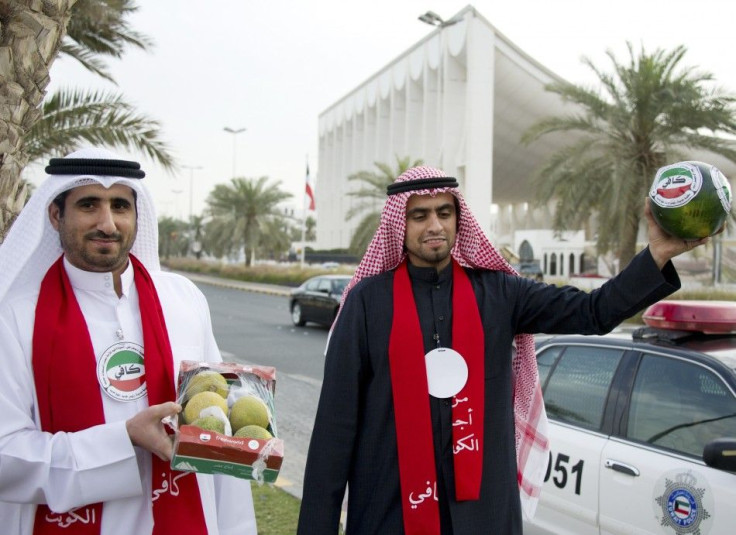Youths in Kuwait to challenge government with unauthorized protests

Not even the wealthy oil kingdom of Kuwait can avoid the unrest that swept over the Middle East.
Youth activist groups Kafi (Enough) and al-Soor al-Khames (The Fifth Fence) are planning to hold a rally to demand the resignation of the country’s Prime Minister Sheikh Nasser al-Mohammad al-Sabah and to call for democratic reforms and greater freedoms.
Fifth Fence is using the social networking site Twitter to inspire its followers to demonstrate on the streets as the Kuwaiti parliament convenes its first session in a month and a half.
We will distribute watermelons to lawmakers as they enter the parliament on Tuesday, as a symbol of chaos and discontent with their performance, a youth movement member told Reuters.
Such a protest would be unauthorized and might test the patience of security officials.
Kuwaiti, one of the wealthiest states on earth and the world’s fourth biggest oil exporter, does not permit political parties nor public protests without securing prior approval.
The kingdom has been ruled by the al-Sabah family for more than two centuries.
The current Prime Minister is the nephew of the ruling emir, Sheikh Sabah al-Ahmed al-Jaber al-Sabah, and has already survived two non-cooperation motions in parliament since he was first appointed in 2006. Five of Nasser’s six cabinets have been forced to resign, while the parliament has been dissolved three times.
The key ministries of key defense, interior and foreign affairs are all currently held by al-Sabahs.
Protesters want a Prime Minister from outside the al-Sabah family.
The first step toward reform is forming a new government under a new prime minister that should be capable of running the country and reforming imbalances, the nationalist Popular Action Bloc recently said in a statement.
Kuwait is also facing rising tensions with the “Bedouns” – stateless Arabs who have lived in Kuwait for decades. Last month, a group of Bedouns fought with police in a rally where they demanded citizenship. Some members of the government offered to discuss drafting a law that would grant them basic civil rights.
© Copyright IBTimes 2025. All rights reserved.





















